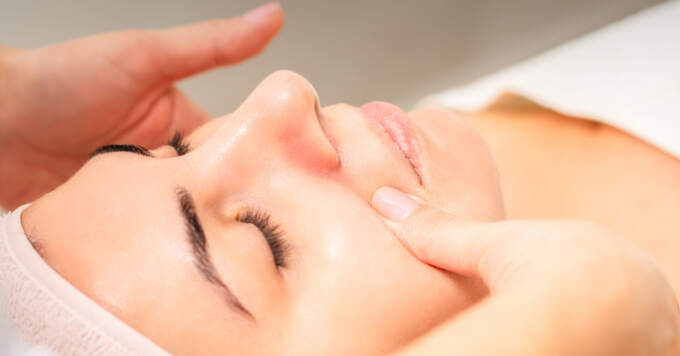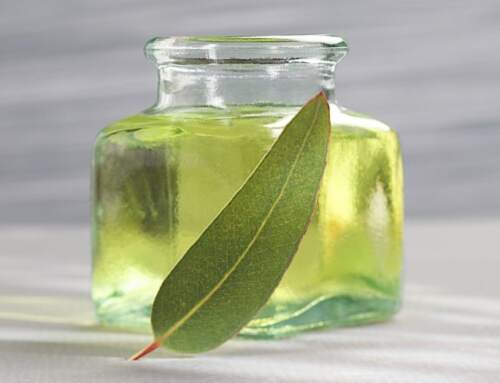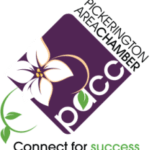Alternative Treatments for Seasonal Allergies
As the seasons shift, do you find yourself grappling with sinus headaches, watery eyes, and that all-too-familiar nasal congestion? You’re not alone. The onset of seasonal allergies, or hay fever, brings with it a slew of symptoms that can dampen anyone’s day. While there’s a myriad of over-the-counter remedies promising relief, many of us are all too familiar with their drowsy side effects, leaving us feeling like we’re walking around in a fog. But what if there was a natural, rejuvenating alternative to those antihistamines? Dive in as we explore a list of alternative treatments that could be game-changers for allergy sufferers seeking relief without the haze.

Why Do Some Have Allergies and Some Don’t?
Seasonal allergies, often referred to as hay fever or allergic rhinitis, affect many, but not everyone. Why is it that while some people relish the beauty of blooming seasons, others dread it due to symptoms like nasal congestion, watery eyes, and sinus headaches? The answer lies in our immune system. For those affected, their immune system mistakenly identifies harmless substances like pollen or pet dander as threats, triggering an allergic reaction. This heightened sensitivity can be influenced by genetics, early exposure to allergens, and certain environmental factors. On the other hand, some individuals might have a naturally robust or tolerant immune response, shielding them from these seasonal woes. It’s also essential to get an accurate diagnosis, as other conditions can mimic allergy symptoms. In the end, the interplay of genetics, environment, and individual immune responses determines who gets hit hardest during allergy season.
Seasonal Allergy Symptoms
Seasonal allergies, often triggered by pollen from trees, grasses, and weeds, can cause a range of symptoms as the body reacts to these airborne substances. While many people associate seasonal allergies with spring, they can occur in any season depending on the region and the specific allergens in the environment. Here are some common symptoms specific to seasonal allergies:
- Nasal congestion: A stuffy feeling caused by inflamed nasal passages.
- Runny nose: Clear, watery discharge from the nose or also a stuffy nose.
- Sneezing: Frequent, sudden bursts, often occurring in succession.
- Itchy eyes: An irritating sensation causing a desire to rub the eyes.
- Watery eyes: Excessive tearing, often accompanied by redness.
- Itchy throat: An irritating sensation in the throat, sometimes leading to coughing.
- Coughing: A dry cough that doesn’t produce mucus.
- Dark circles under the eyes: Often referred to as “allergic shiners.”
- Fatigue: Feeling unusually tired or drained, despite adequate rest.
- Ear congestion: A feeling of fullness or pressure in the ears.
- Sinus Headache: A true sinus headache feels like a deep, constant pain in the forehead, cheekbones, or bridge of the nose, often accompanied by nasal congestion and facial swelling.
- Facial Pain: Facial pain in seasonal allergy sufferers often results from inflammation and pressure in the sinus cavities due to allergic reactions.
If you experience these symptoms primarily during certain times of the year, it’s likely you’re dealing with seasonal allergies. It’s always a good idea to get professional medical advice for proper diagnosis and treatment recommendations.

Common Treatment Options
Seasonal allergies can be quite bothersome, but there are several treatment options available to alleviate symptoms. Here are some typical treatments:
- Over-the-counter medications: Antihistamines and decongestants help reduce the symptoms of allergies by blocking the effects of histamines or reducing swelling in the nasal passages. Pain relievers can help give allergy headache relief.
- Nasal sprays: These can help relieve sinus pains, congestion and inflammation, with both steroid and antihistamine options available.
- Prescription medications: For severe allergies, a healthcare provider might prescribe stronger antihistamines or other allergy medicines.
- Allergy shots (immunotherapy): Regular injections that gradually increase exposure to allergens, helping the body build tolerance over time.
- Neti pot: A natural remedy that involves rinsing the nasal passages with a saline solution to clear out allergens and mucus. [NetiPot, $10.62]
- Eye drops: Specifically designed to combat itchy, watery eyes caused by allergens.
- Allergy testing: Identifying specific allergens can help in tailoring treatments and avoidance strategies.
- Environmental controls: Using air purifiers, keeping windows closed during high pollen times, and regular cleaning can reduce allergen exposure.
Consulting with a primary care physician is essential to determine the best treatment approach for individual needs.
Alternative Treatment Options For Seasonal Allergies
Alternative treatments can offer natural relief for those looking to manage their seasonal allergy symptoms without relying solely on conventional medications. Here are some alternative treatment options:
- Eucalyptus Essential Oil: When inhaled, it can help clear nasal passages and has anti-inflammatory properties that may alleviate sinus pressure. [Read more about eucalyptus oil here]
- Massage Therapy: Helps in relieving tension and can boost circulation, potentially aiding in the removal of allergens from the system.
- Lymph Drainage Therapy: A specialized massage technique that stimulates the lymphatic system, helping to remove toxins and reduce tissue inflammation.
- Acupuncture: An ancient Chinese practice that involves inserting thin needles into specific points on the body, believed to balance energy and reduce allergy symptoms.
- Quercetin Supplements: A natural antioxidant found in fruits and vegetables, quercetin can help stabilize mast cells and prevent them from releasing histamine. [Michele’s Favorite Quercetin]
- Butterbur Extract: A natural remedy that has shown promise in reducing allergy symptoms, often compared to some over-the-counter antihistamines. [Butterbur Extract, $9]
- Probiotics: Beneficial bacteria that can help balance the gut microbiome, potentially boosting the immune system and reducing allergic reactions. [Probiotics Complex, $12.41]
- Nettle Leaf: Often taken as a supplement or tea, nettle leaf can help reduce the amount of histamine the body produces in response to an allergen. [Nettle Leaf Tea, $4.04]
- Saline Nasal Irrigation: Similar to neti pots, this involves rinsing the nasal passages with saline solution, helping to clear out allergens and reduce inflammation.
- Local Honey: Consuming honey produced locally can expose the body to local pollen, potentially helping to build a tolerance over time.
Always consult with a healthcare provider before trying new treatments to ensure they’re safe and appropriate for individual needs. [Also read 9 Ways to Clear Sinus Problems Naturally]

Unlocking Relief: Massage Therapy and Lymph Drainage for Seasonal Allergies
When it comes to seasonal allergies, the body’s response isn’t just limited to sneezing or itchy eyes. Deep within, our systems are working overtime to combat allergens, leading to various symptoms that can affect our well-being. Here’s where massage therapy and lymph drainage come into play:
- Massage Therapy: Beyond relaxation, massage therapy offers therapeutic benefits that directly address allergy-induced discomfort. By focusing on specific pressure points, especially around the face and neck, massage can promote sinus drainage, alleviating the pressure and pain associated with sinus congestion. Furthermore, regular massage sessions can enhance blood circulation, ensuring efficient transport of oxygen and nutrients while aiding in the removal of allergens and toxins. This can be particularly beneficial for those who experience allergy-triggered migraines, as improved circulation can mitigate the severity of head pain. By targeting specific areas, especially around the sinus area and side of the head, massage can help alleviate the dull pain associated with sinus infections. For the migraine sufferer, regular massage sessions can potentially reduce migraine frequency and severity, offering a better quality of life.
- Lymph Drainage Therapy: The lymphatic system is our body’s natural detoxification pathway. When allergens invade, this system can become overwhelmed, leading to fluid build-up and inflammation. Lymph drainage therapy, a targeted massage technique, stimulates and accelerates the movement of lymphatic fluids. This not only helps in expelling allergens faster but also reduces facial puffiness and pressure often associated with allergic reactions. [Read more about lymph drainage]
Incorporating these therapies into your wellness routine can be a game-changer, especially during peak allergy seasons. They not only offer immediate relief but also fortify the body’s natural defenses against common allergens.
Ready to explore these therapeutic avenues? Body Ache Escape Massage Center is here to guide you. Our trained professionals specialize in techniques designed to combat allergy-induced discomfort. Schedule your session today and discover a holistic approach to seasonal allergy relief.



